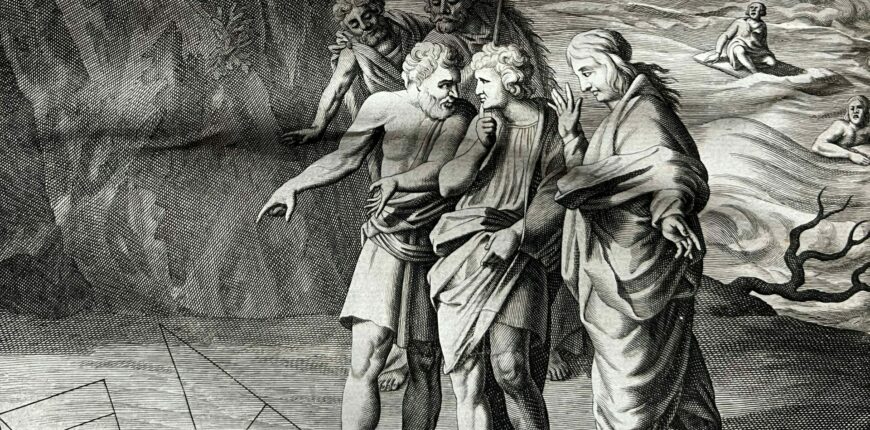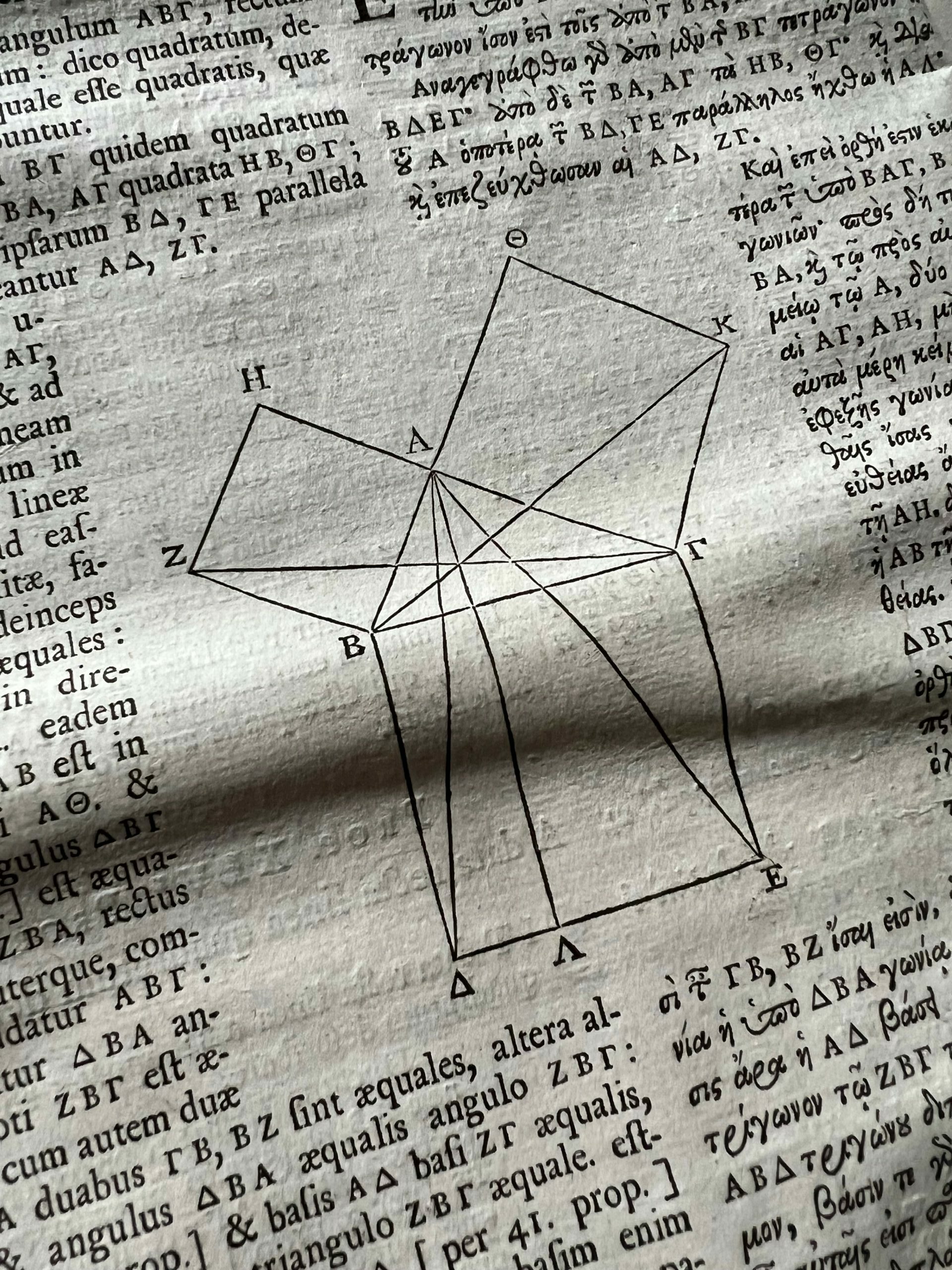David Gregory (1659-1708)

Euclidus quae supersunt omnia (1703)

Euclid’s Elements had a huge impact on Islamic mathematics, and were first translated into Arabic in the 9th century. This was followed by translations into Latin, Greek, and English, particularly in the 16th century. The first English translation (1570) was probably the work of Sir Henry Billingsley, a haberdasher and Lord Mayor of the City of London. Gregory’s translation and commentary of Euclid’s complete works later appeared in both Greek and Latin in 1703.
David Gregory was a contemporary of Isaac Newton (1642-1727), Robert Hooke (1635-1703), and Christopher Wren (1632-1723). He was born in Aberdeen in 1659 and studied at the University there before undertaking a grand European tour. He returned to Edinburgh in 1683, where he received his MA and was appointed to a Chair of Mathematics at the age of 24.
Gregory was an excellent mathematician, and he became first a correspondent and then an acquaintance of Isaac Newton. Gregory showed Newton a model of a cannon invented by his father, but Newton ‘advocated the suppression of the invention as being destructive of the human species’.
In 1691, with some influence from Newton, Gregory became the Savilian Professor of Astronomy at Oxford University, and a Fellow of the Royal Society. At Oxford he developed a reputation as a teacher, and was interested in the reform of mathematics teaching – suggesting that teaching should be in English rather than Latin.
Following the publication of his book in 1703, it seems that Gregory’s health became poor, and in 1708 he visited Bath so that he might be cured. Upon learning that his only daughter was ill with smallpox, he hastened to return to London after less than a week in Bath. But being ill himself, he was forced to stop at Maidenhead, where he sent for his friend Dr John Arbuthnot to attend him. Gregory died soon after Arbuthnot’s arrival, on 10 October 1708 at The Greyhound Inn in Maidenhead. His daughter had meanwhile died of smallpox.
